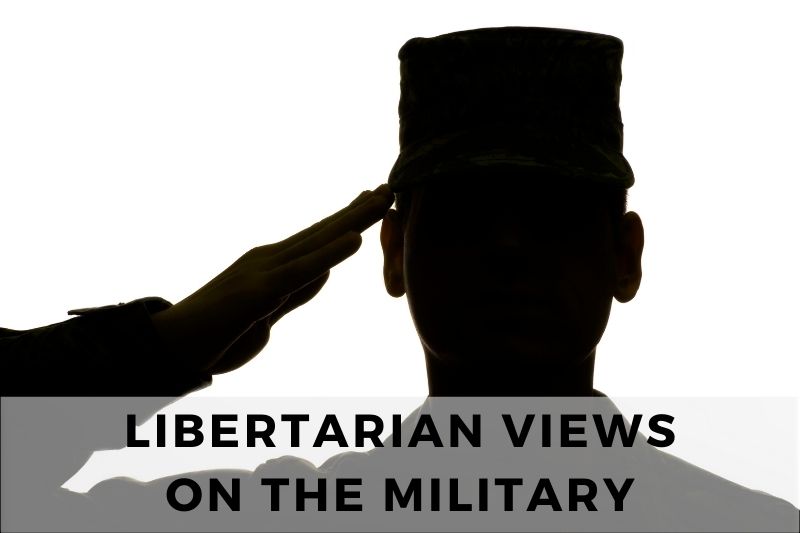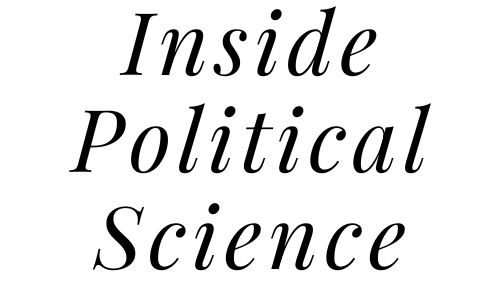
Libertarian views on the military offer a unique perspective on the role of armed forces in society, emphasizing principles of non-interventionism, limited government involvement, and voluntary defense. These views challenge conventional notions of military power and intervention, advocating for a more restrained and defensive approach to national security.
In this article, we will delve into the core tenets of libertarian thought regarding the military, examining their critiques of current policies and addressing common criticisms. By understanding libertarian perspectives, we can engage in a nuanced discussion about the role of the military in a free society.
Libertarian Views on the Military
Libertarian perspectives on the military are multifaceted, reflecting a deep-seated philosophy that emphasizes individual freedom and limited government intervention. The following key principles outline the core of libertarian thought on military affairs:
#1. Non-interventionism
Libertarians generally advocate for a non-interventionist foreign policy, arguing against military involvement in foreign conflicts unless directly threatened. This approach contrasts with more interventionist ideologies, emphasizing the avoidance of unnecessary wars and entanglements. Non-interventionism is rooted in the belief that a nation’s military should be used solely for self-defense and not for imposing its will on other nations.
#2. Limited Government Involvement
Central to libertarian views is the belief in limited government, extending to military affairs. Libertarians argue that the government’s role should be restricted to defending against external threats and protecting individual rights, rather than engaging in large-scale military operations or nation-building. They believe that a smaller, less intrusive government is more conducive to preserving individual liberties and preventing abuses of power.
#3. Voluntary Defense
Libertarians often propose voluntary defense mechanisms, such as private defense agencies or militias, as alternatives to government-run militaries. They believe that individuals and communities should be free to organize their own defense, rather than relying solely on government forces. This approach is seen as more efficient and responsive to the needs of the people, as private defense agencies would be incentivized to provide high-quality services in order to compete in the market.
#4. Defense of Individual Rights
A core tenet of libertarianism is the protection of individual rights, including the right to self-defense. Libertarians argue that the military’s primary role should be to defend these rights, both domestically and abroad, rather than pursuing broader geopolitical goals. This perspective emphasizes the importance of using military force judiciously and in accordance with the principles of just war theory, which seeks to limit the use of force to cases of self-defense or defense of others.
#5. Opposition to Militarism
Libertarians are critical of militarism, the belief in the use of military force as a solution to international problems. They argue that militarism can lead to unnecessary conflicts, erode civil liberties, and divert resources from more pressing domestic needs. Instead, libertarians advocate for diplomacy and peaceful conflict resolution as the preferred methods for resolving disputes between nations, reserving military force only as a last resort.
#6. Skepticism of Alliances and Entanglements
Many libertarians are wary of international alliances and entanglements, viewing them as potential sources of conflict and entrapment. They advocate for a more cautious approach to alliances, emphasizing the importance of maintaining national sovereignty and independence. Libertarians argue that alliances should be based on mutual interests and principles, rather than on political expediency or the pursuit of power.
#7. Emphasis on Defensive Military Actions
In line with their non-interventionist stance, libertarians emphasize the importance of defensive military actions. They argue that military force should only be used in response to direct threats, rather than as a tool for advancing political or ideological agendas. This approach is intended to prevent unnecessary conflicts and minimize the risk of unintended consequences that can arise from aggressive military actions.
Libertarian Critique of Current Military Policies
Libertarians offer a critical analysis of current military policies, highlighting key areas of concern and proposing alternative approaches. The following sections outline their critiques:
#1. Critique of Military Interventionism
Libertarians critique the widespread use of military intervention (eg. Iraq, Afghanistan) as a means of achieving foreign policy objectives. They argue that such interventions often lead to unintended consequences, including increased hostility towards the intervening nation, destabilization of regions, and loss of life.
Instead, libertarians advocate for a policy of non-intervention, emphasizing diplomacy and peaceful conflict resolution. They suggest that military intervention can often exacerbate conflicts rather than resolve them, pointing to examples such as the Iraq War, which they argue created more instability in the region.
#2. Economic Costs and Consequences
Another major critique of current military policies is the significant economic costs associated with maintaining a large military presence and engaging in military conflicts. Libertarians argue that these costs divert resources away from more productive uses, such as infrastructure development and education, and can contribute to economic instability. They point to the enormous budget allocated to defense spending and argue that reallocating these funds could address pressing domestic issues, such as healthcare and poverty.
#3. Erosion of Civil Liberties
Many libertarians are concerned about the erosion of civil liberties that can occur during times of war or heightened military activity. They argue that expansive military powers, such as warrantless surveillance and indefinite detention, can infringe on individual rights and undermine the principles of limited government. Libertarians highlight the importance of protecting civil liberties, even in times of crisis, and advocate for greater transparency and accountability in government actions.
#4. Influence of Military-Industrial Complex
Libertarians criticize the influence of the military-industrial complex on government policy, arguing that it can lead to a perpetuation of conflict for the benefit of defense contractors and other vested interests. They advocate for greater transparency and accountability in military spending and procurement processes, pointing to instances of wasteful spending and corruption within the defense industry.
#5. Lack of Congressional Oversight
Another area of concern for libertarians is the lack of effective congressional oversight of military actions. They argue that this lack of oversight can lead to executive overreach and a disregard for constitutional limits on presidential war powers. Libertarians emphasize the importance of a strong system of checks and balances to ensure that military actions are conducted in accordance with the law and the will of the people.
#6. Blowback and Unintended Consequences
Libertarians warn of the concept of blowback, where military actions abroad can result in unintended consequences, such as increased terrorism and instability. They argue that a more restrained foreign policy can help mitigate these risks and promote long-term stability. Libertarians point to examples such as the arming of rebel groups in Afghanistan during the Soviet-Afghan War, which they argue contributed to the rise of extremist groups like the Taliban.
#7. Humanitarian Concerns
Lastly, libertarians raise humanitarian concerns about the impact of military actions on civilian populations. They argue that the use of force should be proportionate and avoid unnecessary harm to non-combatants, in line with principles of just war theory. Libertarians emphasize the importance of considering the human cost of military actions and advocate for policies that prioritize the protection of innocent lives.
Common Criticisms of the Libertarian View on Military
While libertarian views on the military offer a unique perspective, they are not without criticism. Critics raise several concerns about the feasibility and implications of libertarian principles in military affairs. The following sections outline some common criticisms:
#1. Perceived Naivety Regarding Security Threats
Critics argue that libertarian non-interventionism and emphasis on voluntary defense mechanisms can be naive in the face of real security threats. They contend that relying solely on diplomacy and voluntary cooperation may not be sufficient to deter aggressive actors on the world stage. Critics point to historical examples, such as the rise of Nazi Germany, to illustrate the potential dangers of underestimating security threats and the need for a robust defense capability.
#2. Lack of Preparedness for Defense
Another criticism is that libertarian proposals for voluntary defense mechanisms may result in a lack of preparedness to respond to military threats. Critics argue that a standing military is necessary to provide a rapid and effective response to potential attacks. They suggest that relying on voluntary militias or private defense agencies may lead to delays in mobilization and coordination, reducing the effectiveness of defense efforts.
#3. Potential for Free-Riding in Collective Defense
Critics also point out that in a system of voluntary defense, there is a risk of free-riding, where individuals or communities benefit from the defense efforts of others without contributing their fair share. This could weaken overall defense capabilities and create incentives for individuals to shirk their defense responsibilities, leading to a breakdown in collective defense efforts.
#4. Ignoring Global Responsibilities
Some critics argue that libertarian views on the military ignore the global responsibilities of nations to promote peace and security. They contend that a purely defensive posture may not address threats that require collective action, such as terrorism or regional conflicts. Critics suggest that a more proactive approach to international security, including participation in alliances and peacekeeping missions, may be necessary to address these global challenges effectively.
#5. Underestimation of Military Necessity in Some Situations
Critics suggest that libertarians may underestimate the necessity of military action in certain situations, such as humanitarian interventions or responses to genocide. They argue that a strict non-interventionist policy could lead to moral dilemmas and inaction in the face of atrocities. Critics point to instances, such as the Rwandan genocide, where international intervention was deemed necessary to prevent mass atrocities, as examples of situations where a more proactive military stance may be justified.
#6. Unrealistic Expectations of Voluntary Defense Mechanisms
Critics also question the feasibility of libertarian proposals for voluntary defense mechanisms, suggesting that such systems may not be able to provide the level of security and coordination needed to defend against modern military threats. They argue that a well-functioning military requires centralized command and control structures, as well as significant resources and training, which may be difficult to achieve through voluntary means alone.
#7. Vulnerability to Authoritarian Regimes
Finally, critics argue that a purely defensive military posture could leave libertarian societies vulnerable to aggression from authoritarian regimes that may not respect the principles of non-aggression and voluntary cooperation. They suggest that a stronger military deterrent may be necessary to protect against such threats. Critics point to historical examples, such as the invasion of Poland by Nazi Germany, to illustrate the potential dangers of a weak defense posture in the face of aggressive authoritarian regimes.
Closing Thoughts
In conclusion, understanding libertarian views on the military provides valuable insights into alternative approaches to national security and defense. While critics raise valid concerns about the feasibility and implications of libertarian principles, proponents argue that these criticisms can be addressed through careful planning, cooperation, and a commitment to individual rights and freedoms.
By engaging in a nuanced discussion about the role of the military in a free society, we can explore new ideas and perspectives that may help shape more effective and responsible defense policies in the future.
